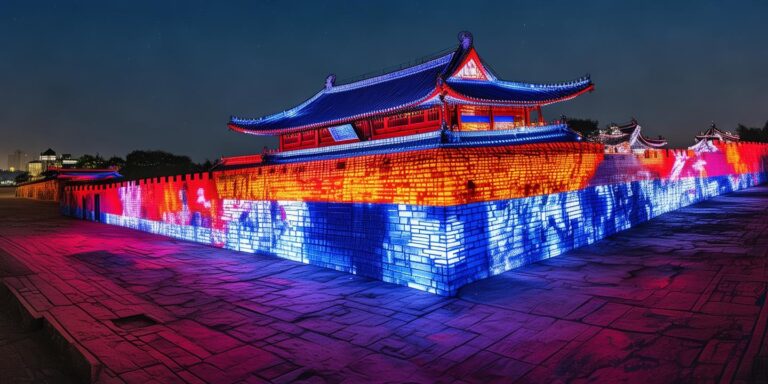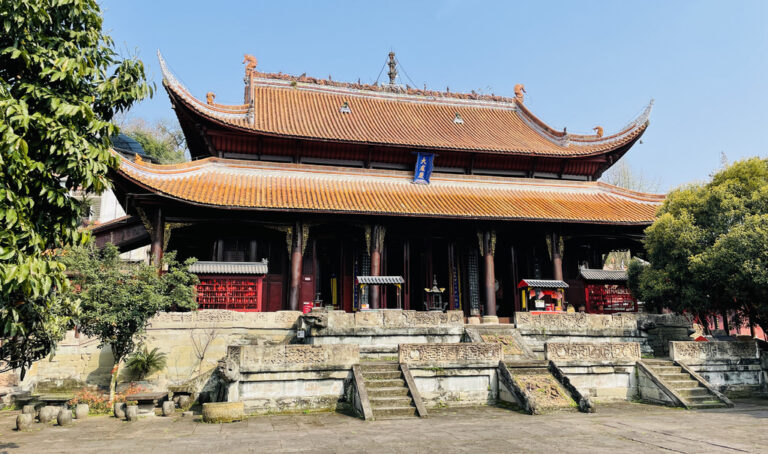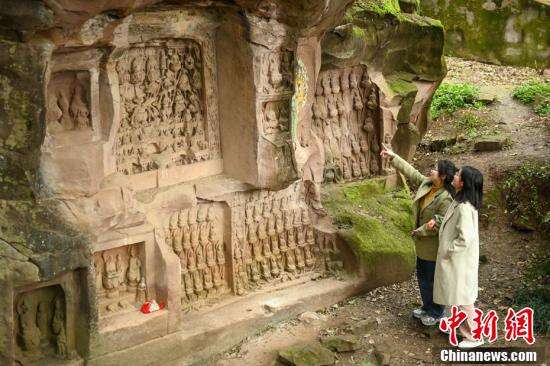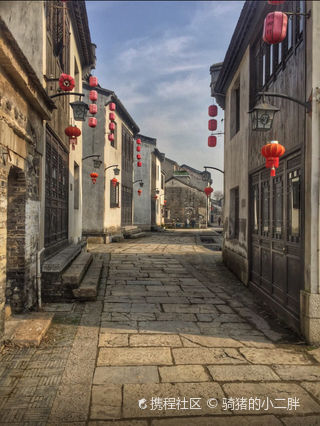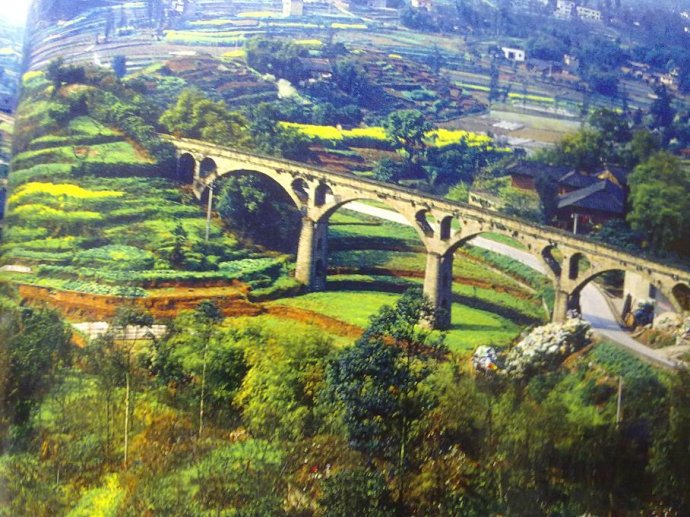Experience the Charm of Suzhou Yipu: A Traveler’s Guide to the Heart of Suzhou
An Essential Guide to Visiting Suzhou Yipu
In This Guide
Nestled in the heart of Suzhou, a city often celebrated for its rich tapestry of classical gardens and ancient waterways, lies the enchanting Suzhou Yipu, or the Garden of Cultivation. This gem, though smaller than its more famous counterparts, offers an intimate glimpse into the artistry of Ming Dynasty landscape design. With its tranquil water features, delicate rock formations, and meticulously arranged pavilions, Yipu stands as a testament to the philosophical ideals of harmony between man and nature.
Originally established in 1541, this garden was later acquired by the renowned artist Wen Zhengming’s grandson, transforming it into a sanctuary of creativity and contemplation. The garden’s layout is a masterclass in space utilization, inviting visitors to meander through its winding paths that lead to picturesque viewpoints, each revealing a different facet of its beauty. Seasonal blooms, particularly the roses that adorn its pathways in spring, create a vibrant contrast against the lush greenery and traditional architecture, making Yipu a photographer’s paradise.
Despite its modest size, the garden’s charm lies in its serene ambiance, offering a much-needed respite from the bustling city life. It beckons not only garden enthusiasts but also those seeking a deeper connection with Chinese culture and history. Whether you’re sipping tea in a pavilion or wandering along the reflective pool, Suzhou Yipu promises a refreshing escape into the poetic landscapes that define this ancient water town. Join us as we explore the rich heritage and tranquil beauty of this lesser-known treasure amidst the splendor of Suzhou’s famed gardens.
The Rich History of Suzhou Yipu
Nestled in the heart of Suzhou, Yipu, also known as the Garden of Cultivation, is a captivating example of classical Chinese garden design that embodies the artistic sensibilities of the Ming Dynasty. Established in 1541 during the Jiajing reign, the garden was initially named Yaopu, or the Medicine Garden, reflecting its origins tied to herbal cultivation. It was later acquired in 1620 by Wen Zhengming’s grandson, Wen Zhenmeng, who enriched its cultural significance.
In 1659, the garden changed hands again, becoming the property of Jiang Cai, a local from Laiyang in Shandong province, who renamed it Yipu. This transformation marked a significant shift in the garden’s identity, as it evolved from a medicinal space to a refined artistic retreat.
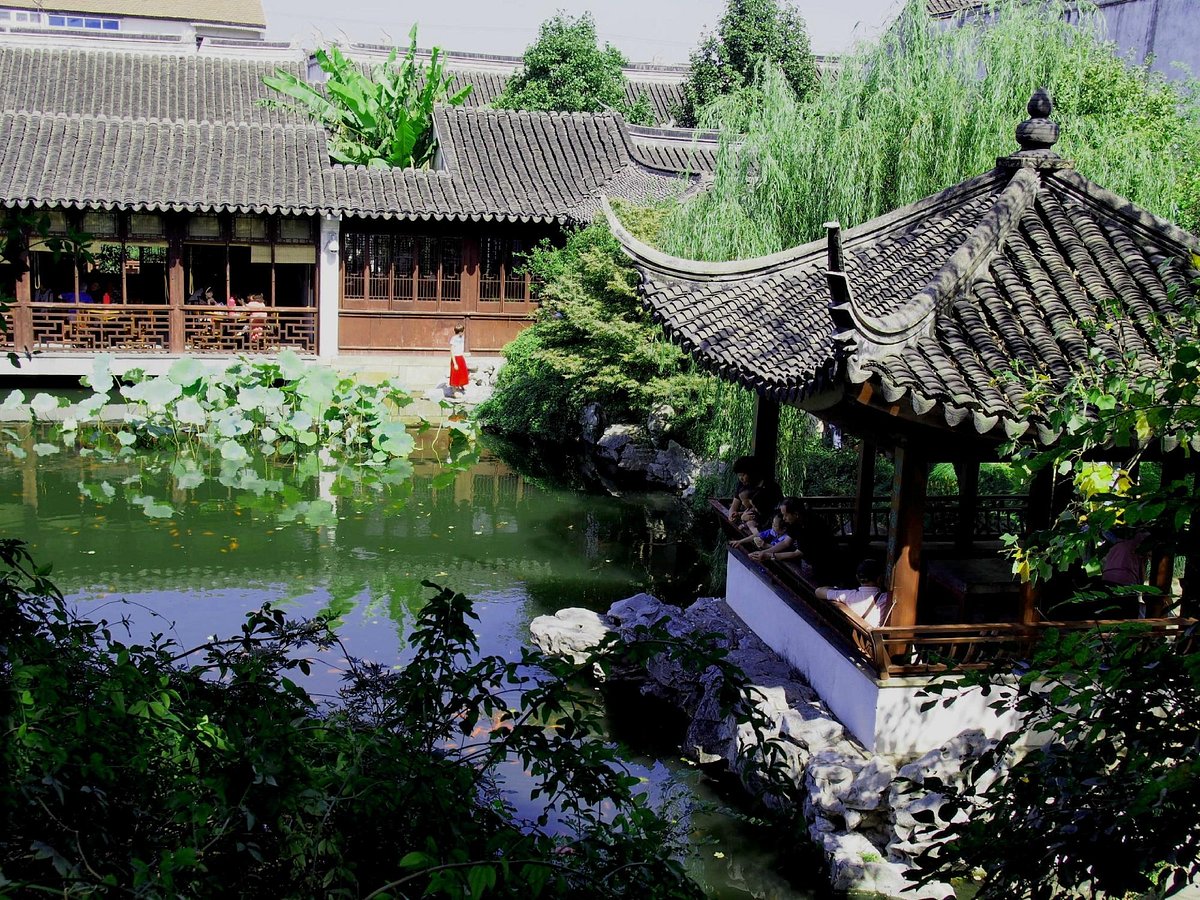
Suzhou Yipu.
Yipu is particularly noted for its minimalist yet profound design, which stands in stark contrast to the elaborate layouts of many later Qing Dynasty gardens. The layout centers around a serene pond, which divides the space into two distinct areas: the residential section to the north, featuring structures like the Boya Hall and the Yanguang Pavilion, and the southern section dominated by natural features such as rock formations and lush greenery.
The garden’s architectural elements and meticulous landscaping reflect the aesthetics of Ming artistry, showcasing a harmonious blend of water, stone, and plant life. Noteworthy is the use of local Taihu stones, which form dramatic cliffs and winding paths, embodying the natural beauty that Suzhou gardens are celebrated for. One of the garden’s highlights is the Niu Yu Pavilion, a relic from the Ming era, which offers a picturesque view across the tranquil waters.
Visitors to Yipu can enjoy a tranquil environment, often less crowded than other major gardens in Suzhou, making it an ideal spot for reflection and appreciation of nature. Each season brings distinct beauty to the garden, with vibrant flowers in spring and a rich tapestry of foliage in autumn. This intimate garden not only serves as a retreat for locals but also as a window into the cultural and historical essence of Suzhou, a city renowned for its classical garden heritage.
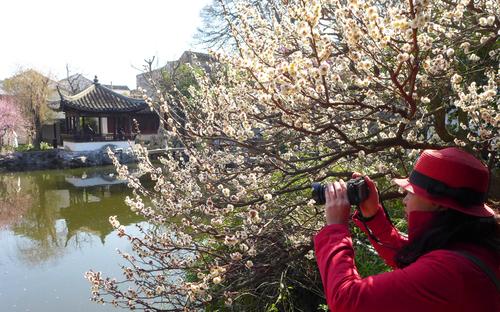
Suzhou Yipu.
Today, Yipu stands as a significant cultural landmark, recognized as a key site of historical preservation in Jiangsu province. Its understated elegance continues to attract visitors seeking a deeper understanding of Chinese garden philosophy and artistry.
Main Highlights: What to See at Suzhou Yipu
Nestled in a quiet alley of Suzhou, the Suzhou Yipu (艺圃) is a hidden gem that embodies the essence of traditional Chinese garden design. Established in 1541 during the Ming Dynasty, this petite garden is a testament to the artistry and philosophy of its time, showcasing a harmonious blend of natural beauty and human craftsmanship.
Visitors to Yipu will be greeted by its central water feature, which serves as the heart of the garden. The layout is divided into two main areas: residential and garden spaces. To the north, elegant buildings like the Boya Hall and the Yanggu Pavilion offer a glimpse into the scholarly life of the past. The southern part is dominated by scenic mountain views and intricately arranged rocks, creating a picturesque backdrop that feels both tranquil and invigorating.
One of the standout features of Yipu is its clever use of space. Despite its compact size, the garden is designed to create a sense of expansive beauty. The winding pathways lead you through lush greenery, blooming flowers, and quaint pavilions, making every corner a perfect spot for photography. The garden’s artistic layout reflects the philosophy of “small yet profound,” allowing visitors to experience the grandeur of nature in a more intimate setting.
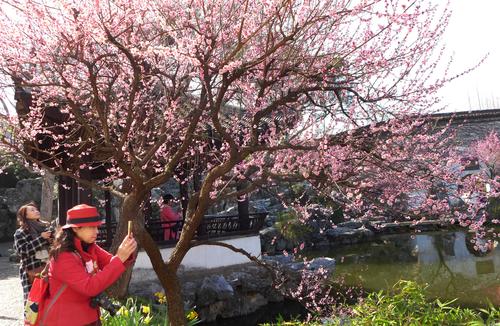
Suzhou Yipu.
In the spring, Yipu bursts into color as roses and other blossoms come into full bloom, offering a vibrant display that attracts both locals and tourists. The garden is particularly enchanting during this season, as sunlight filters through the foliage, casting playful shadows and creating a serene atmosphere perfect for leisurely strolls.
With an admission fee of just 10 yuan, Yipu is an accessible delight for those looking to escape the bustling city streets. Open daily from 7:30 AM to 5:30 PM, it’s advisable to visit early in the day or later in the afternoon to avoid crowds and fully soak in the peaceful ambiance. Whether you’re a history enthusiast, a nature lover, or simply seeking a refuge from the urban rush, Suzhou Yipu offers a truly unique experience that encapsulates the charm of traditional Chinese gardens.
Planning Your Visit: A Practical Guide
Practical Guide to Suzhou Yipu (艺圃)
Nestled within the charming streets of Suzhou, Yipu (艺圃) is a serene escape that embodies the elegance of classic Ming Dynasty garden design. This practical guide will help you navigate your visit to this hidden gem, ensuring you make the most of your time in this exquisite garden.
Location and Access
Yipu is located at 5 Wenyang Lane, Gusu District, Suzhou, Jiangsu Province. The garden is easily accessible via public transit; take Metro Line 1 to Lin Dun Road Station, and then enjoy a brief 10-minute walk to the entrance. Be prepared for narrow alleyways leading to the garden, which enhances its secluded charm.
Opening Hours
- March to October: 7:30 AM to 5:30 PM (last entry at 5:00 PM)
- November to February: 7:30 AM to 5:00 PM (last entry at 4:30 PM)
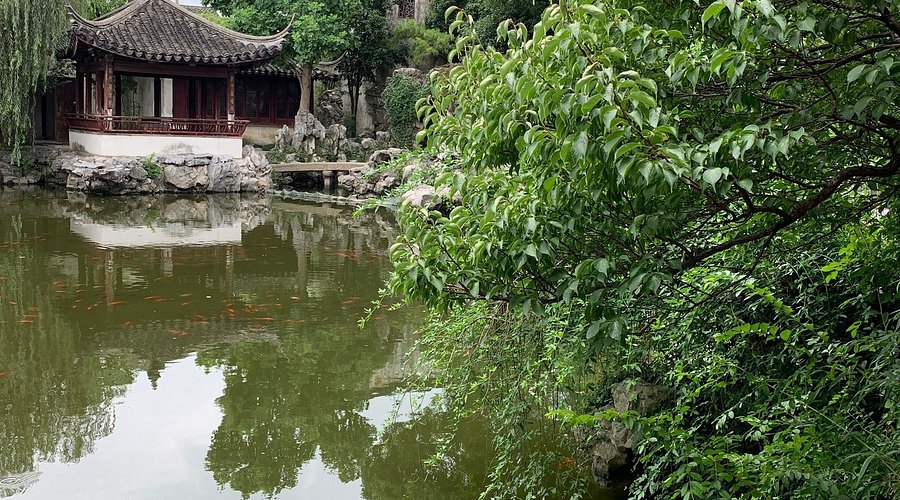
Suzhou Yipu.
Admission Fees
The entrance fee to Yipu is incredibly affordable, costing around 10 CNY (approximately $1.50 USD), making it an excellent option for budget travelers.
Recommended Duration
Plan to spend 1 to 2 hours exploring Yipu. This timeframe allows you to appreciate the garden’s intricate designs, enjoy a cup of tea in the tea pavilion, and take plenty of photos amidst the lush surroundings.
Garden Layout and Highlights
Yipu is characterized by its central pond, which divides the garden into a residential area and a garden area. Key features to explore include:
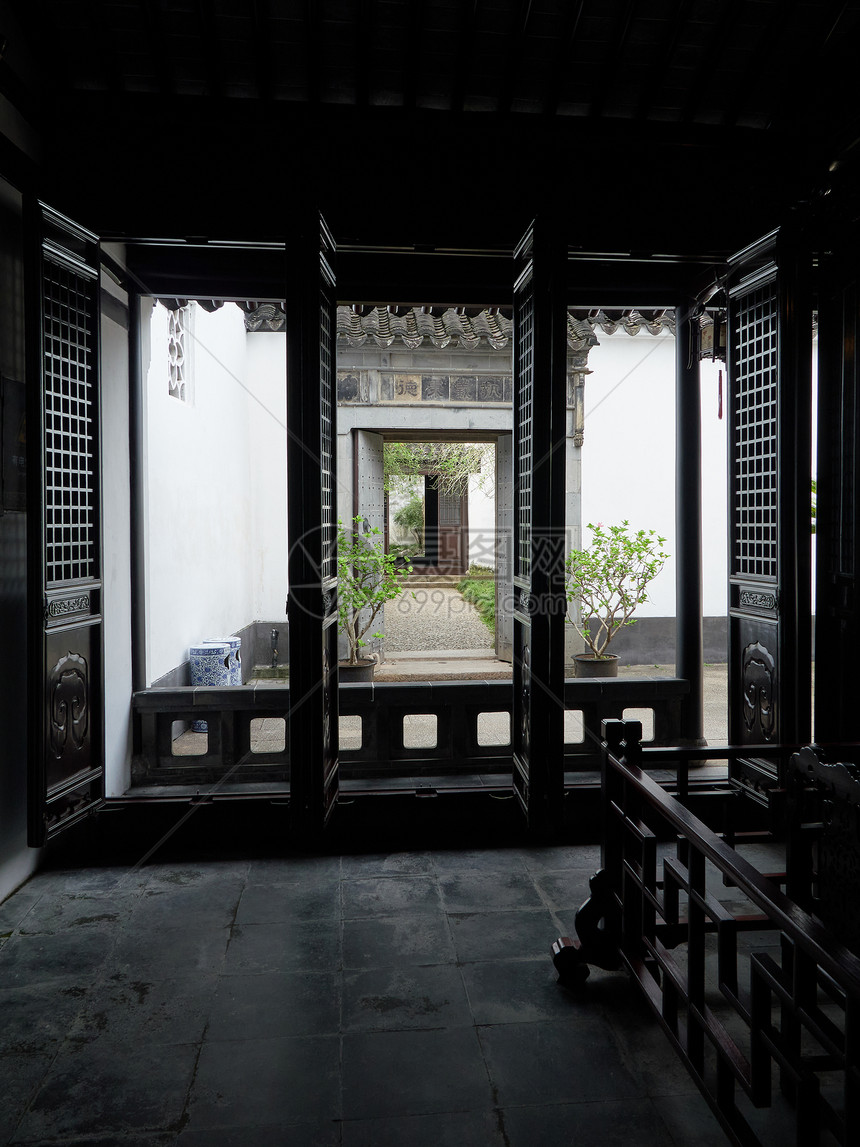
Suzhou Yipu.
- Boya Hall (博雅堂): The main hall, showcasing the works of contemporary Suzhou artists.
- Yanguang Pavilion (延光阁): A perfect spot for tea and reflection, offering stunning views over the pond and rock formations.
- Xiangcao Residence (香草居): Once a private study, this area is adorned with beautiful bamboo and stone details.
The layout encourages a leisurely stroll, connecting various sections of the garden through winding paths that enhance the sense of tranquility and intimacy.
Best Time to Visit
For optimal beauty, consider visiting during the spring (April to May) when flowers are in full bloom, especially the roses that cascade over the garden walls. The autumn months also provide a picturesque backdrop with vibrant foliage.
Photography Tips
Yipu is a photographer’s paradise. To capture the best images, visit during the golden hour—early morning or late afternoon. Focus on the reflections in the pond, the delicate flower arrangements, and the intricate architecture of the pavilions. Utilizing natural framing techniques, such as archways and windows, can add depth to your photos.
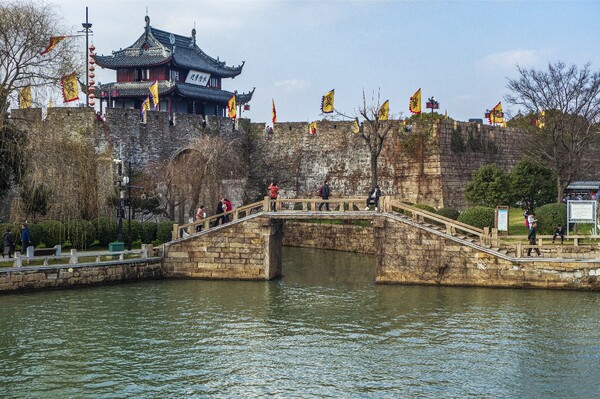
Suzhou Yipu.
Nearby Attractions
After visiting Yipu, consider exploring other notable sites in Suzhou:
– Humble Administrator’s Garden (拙政园): A UNESCO World Heritage Site known for its expansive layout and stunning water features, just a short walk away.
– Pingjiang Road (平江路): A historic street lined with traditional architecture, shops, and cafes, perfect for a leisurely stroll or a meal.
Food and Refreshments
While there are no dining facilities within Yipu, you can find local eateries nearby. Try the famous Squirrel Fish (松鼠桂鱼) or Suzhou-style noodles at one of the nearby restaurants. For a light refreshment, grab a cup of tea or a sweet treat from local vendors.
Travel Tips
- Transportation: Suzhou has a reliable public transport system, including buses and subways. Consider using a bike-sharing service for a more immersive experience.
- Crowd Avoidance: To avoid crowds, plan your visit during weekdays or early in the morning, especially during peak tourist seasons.
- Comfortable Footwear: The garden paths can be uneven; wear comfortable shoes for an enjoyable experience.
Yipu offers a tranquil retreat from the bustling city life, allowing you to step back in time and immerse yourself in the beauty of classical Chinese garden art. Enjoy your visit!
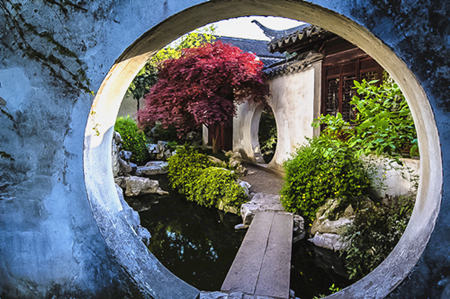
Suzhou Yipu.
Tickets, Hours, and Booking
Visiting Suzhou Yipu (艺圃) is an enriching experience, especially for those interested in traditional Chinese gardens and history. Here’s what you need to know about ticket prices and purchasing options for this enchanting garden.
Admission to Suzhou Yipu is quite affordable, with tickets priced at approximately 10 CNY (or about $1.50 USD). This nominal fee allows you to explore one of the finest examples of Ming Dynasty garden design in the heart of Suzhou.
Ticket Purchase Options
-
On-Site Purchase: Visitors can easily buy tickets at the entrance of the garden. It’s advisable to arrive early in the day, as the garden opens at 7:30 AM and ticket sales stop at 5:00 PM (with the last entry permitted by 5:00 PM).
-
Online Booking: For those who prefer to plan ahead, tickets can also be purchased via various travel platforms and local ticketing websites. This can help you avoid potential queues and ensure your entry, particularly during peak tourist seasons.
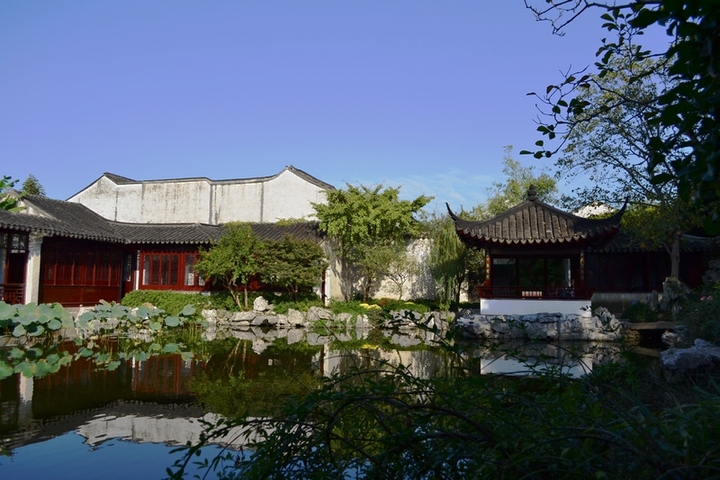
Suzhou Yipu.
Opening Hours
- March to October: 7:30 AM to 5:30 PM
- November to February: 7:30 AM to 5:00 PM
Recommendations
While the ticket price is minimal, the experience within Yipu is invaluable. The garden is relatively small, typically requiring 1 to 2 hours for a thorough visit. It’s best to take your time and immerse yourself in the beauty of the landscape, the intricate design, and the serene atmosphere.
Accessibility
The garden is located at 5 Wenya Lane, Gusu District, Suzhou. Due to the narrow lanes surrounding Yipu, public transportation or walking is recommended for easier access. The nearest metro station is Lin Dunt Road Station (Line 1), from where it’s about a 10-minute walk to the entrance.
In summary, Suzhou Yipu offers a delightful and affordable opportunity to experience classical Chinese landscaping and artistry, making it a must-visit destination in Suzhou.
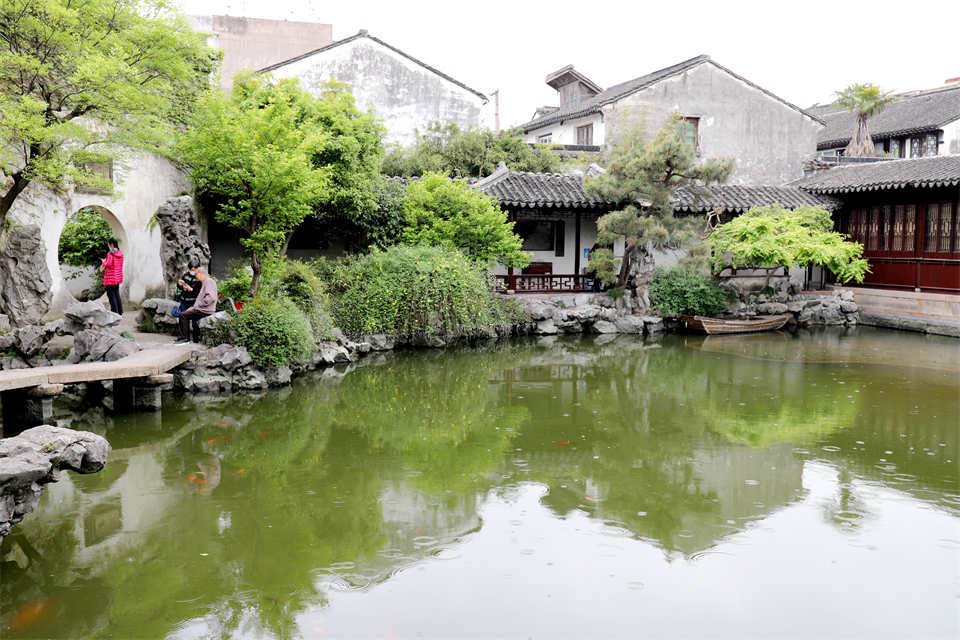
Suzhou Yipu.
How to Get There
Navigating to Suzhou Yipu (艺圃) is a delightful experience, as the city boasts a well-developed transportation network that makes it easy to explore its charming streets and scenic spots.
Getting to Suzhou Yipu
Location: Suzhou Yipu is nestled in the heart of Suzhou, specifically at 5 Wenya Lane, Gusu District. This tranquil garden is easily accessible from various parts of the city and nearby regions.
Public Transportation:
– Metro: The most convenient way to reach Yipu is via the Suzhou Metro. Take Line 1 and disembark at Lin Dun Lu Station (临顿路站). From Exit 3, it’s approximately a 10-minute walk to the garden entrance. The signage around the metro stations is clear, making navigation straightforward.
- Bus: Several bus routes service the area around Yipu. You can take Bus 811 and get off at Song Xian Zhou Xiang stop, which is about a 15-minute walk from the garden. Buses are frequent and provide an affordable way to explore the city.
Walking: The area around Yipu is pedestrian-friendly, with charming alleyways and local shops. Walking allows you to soak in the traditional architecture and vibrant atmosphere of Suzhou. However, be prepared for some uneven cobblestone streets within the garden itself.
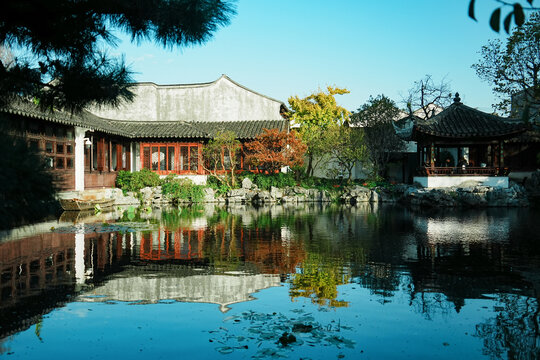
Suzhou Yipu.
Local Transportation
Bicycles: For a more leisurely exploration, consider renting a bicycle. Suzhou has numerous bike-sharing programs, and cycling through the city is a scenic way to enjoy the sights. Just remember that some narrow lanes near Yipu may not be accessible by bike.
Taxis and Ride-Sharing: If you prefer a direct route, taxis are readily available throughout Suzhou. Alternatively, ride-sharing services like Didi are popular and convenient. Just enter “Yipu” in the app, and you’ll be on your way.
Parking Information
If you are driving, keep in mind that parking near Yipu is limited due to the narrow streets. It is advisable to use public transport to avoid the hassle of finding parking. If you must drive, look for nearby parking facilities but be prepared for a short walk to the garden.
Timing Your Visit
Yipu is open daily from 7:30 AM to 5:30 PM (with last admissions at 5:00 PM). To avoid the crowds, especially during peak tourist seasons, consider visiting early in the morning on weekdays.
In summary, whether you choose the metro, bus, bicycle, or taxi, reaching Suzhou Yipu is simple and allows for the enjoyment of the city’s rich cultural heritage along the way.

Suzhou Yipu.
Local Cuisine and Accommodation
When visiting Suzhou’s charming Yipu (艺圃), food and accommodation options abound, allowing travelers to indulge in authentic local flavors and comfortable lodging.
Culinary Delights
Suzhou is renowned for its Jiangsu cuisine, and near Yipu, you’ll find several eateries that showcase the best of the region’s culinary offerings.
-
Muxiang Chinese Restaurant (木香中餐厅): Located about 2.4 kilometers from Yipu, this restaurant specializes in Jiangsu cuisine, providing a delightful dining experience. With an average meal costing around ¥121 per person, it is a great place to sample traditional dishes in a cozy atmosphere.
-
De Yue Lou (得月楼): Just 1.6 kilometers from the garden, this establishment has been serving guests since the Ming Dynasty and is famed for its Suzhou-style dishes. The ambiance is steeped in history, making it an ideal spot for those looking to immerse themselves in the local culture while enjoying a meal. Expect to spend around ¥132 per person.
-
Tony’s Su面坊 (托尼洛·兰博基尼书苑酒店): A bit further, approximately 7 kilometers away, this restaurant is known for its casual dining and offers a variety of snacks that are perfect for a quick bite. Menu highlights include their Supreme Family Set, priced at ¥168, which is perfect for sharing.
Accommodation Options
For a comfortable stay close to Yipu, consider these recommended hotels:
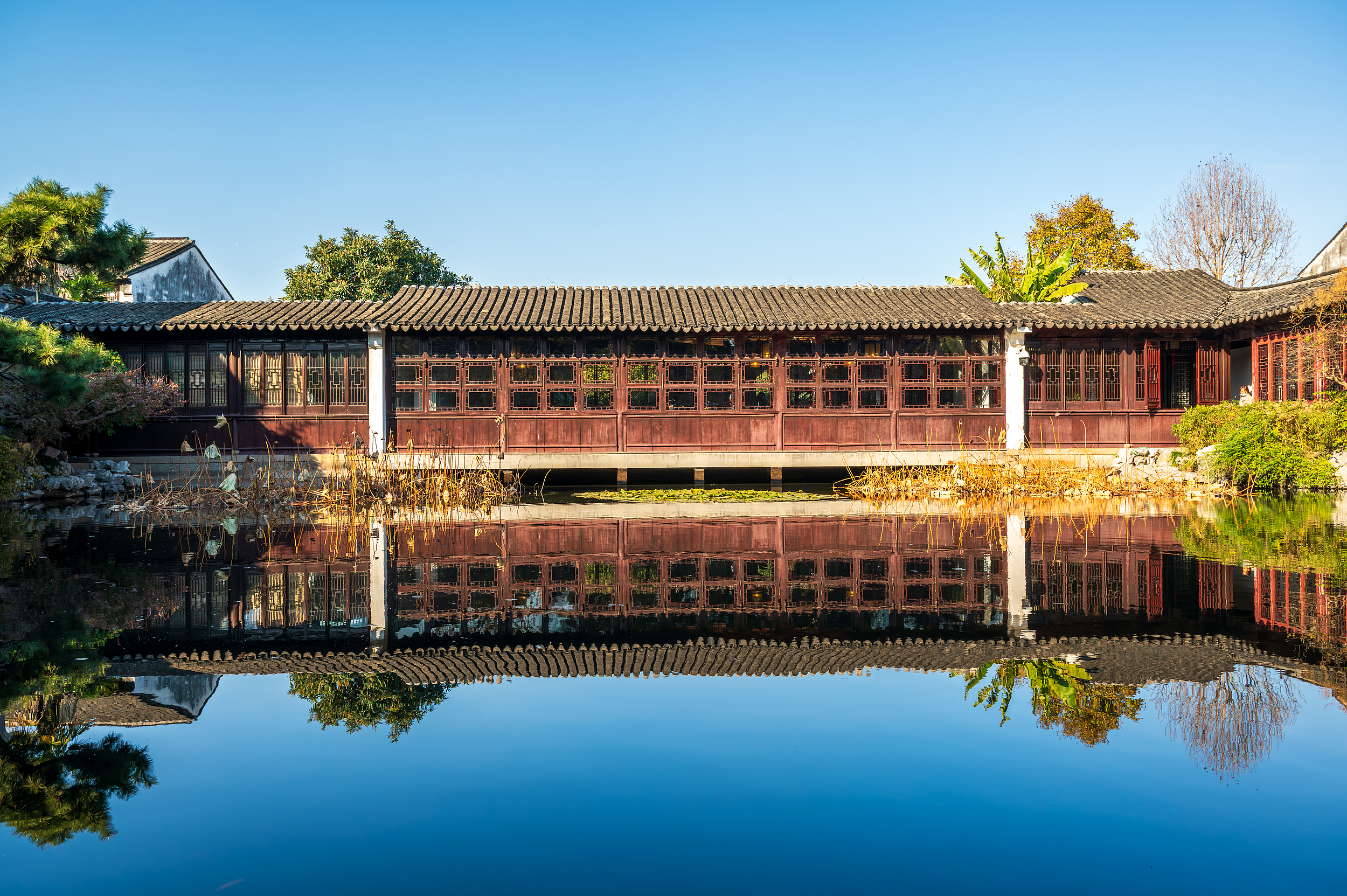
Suzhou Yipu.
-
Suzhou Shanhou Hotel (苏州尚豪宾馆): Situated conveniently within the city, this hotel provides clean and comfortable rooms at a reasonable price, typically around ¥100 per night. Its proximity to major attractions makes it an ideal choice for travelers.
-
Suzhou Pingjiang Mansion (苏州书香府邸): This charming hotel is located near Pingjiang Road, offering a unique experience with its traditional architecture and serene surroundings. Rooms are well-appointed and provide a cozy retreat after a day of exploring, with rates starting at approximately ¥200.
-
Sofitel Suzhou (苏州凯宾斯基): For those seeking a more luxurious experience, this upscale hotel features elegant accommodations and top-notch amenities. It’s located a short distance from Yipu and offers stunning views of the city. Room rates generally start from ¥800, making it a perfect choice for travelers looking to indulge.
Practical Tips
-
Timing Your Visit: If you plan to dine at popular spots, consider making reservations in advance, especially during peak travel seasons.
-
Local Specialties: Be sure to try Suzhou’s famous dishes, such as Squirrel-shaped Mandarin Fish, a beautifully presented dish that is both crispy and tender.
-
Transportation: The area is well-connected by public transport, so you can easily explore restaurants and hotels around Yipu without hassle.
With these recommendations, your visit to Suzhou’s Yipu will be complemented by delightful dining experiences and comfortable accommodation, ensuring a memorable journey through this enchanting city.
Frequently Asked Questions
Frequently Asked Questions about Suzhou Yipu (艺圃)
-
What is Suzhou Yipu and what makes it unique?
Suzhou Yipu, also known as the Garden of Cultivation, is a small yet exquisite classical garden in Suzhou, dating back to the Ming Dynasty. It stands out for its harmonious blend of water features and natural landscapes, showcasing traditional Suzhou garden aesthetics without excessive ornamentation. -
Where is Yipu located?
Yipu is located at No. 5 Wenyang Lane, Gusu District, Suzhou, Jiangsu Province, China. It’s tucked away in a quaint alley, providing a serene escape from the bustling city. -
What are the opening hours for Yipu?
Yipu is open daily from 7:30 AM to 5:30 PM from April to October and until 5:00 PM from November to March. Please note that entry tickets are sold until 5:00 PM. -
How much does it cost to enter Yipu?
The admission fee for Yipu is approximately 10 CNY (around 1.5 USD). This makes it an affordable option for visitors seeking to experience a traditional Chinese garden. -
How long should I plan to spend at Yipu?
A visit to Yipu typically takes about 1 to 2 hours. This allows ample time to explore the garden’s features, relax by the pond, and appreciate the architectural details. -
Is Yipu accessible for visitors with disabilities?
The garden’s layout includes some uneven paths, and while it may present challenges, efforts have been made to improve accessibility. It’s advisable to check in advance for specific accommodations or assistance. -
What is the best time of year to visit Yipu?
Spring (March to May) and autumn (September to November) are ideal times to visit Yipu when the weather is mild, and the garden is in full bloom, showcasing vibrant seasonal flowers. -
Are there any dining options nearby?
Yes, there are several local dining options within walking distance of Yipu. Visitors can enjoy traditional Suzhou cuisine, including famous dishes like sweet and sour Squirrel Fish, or relax with tea at nearby tea houses.
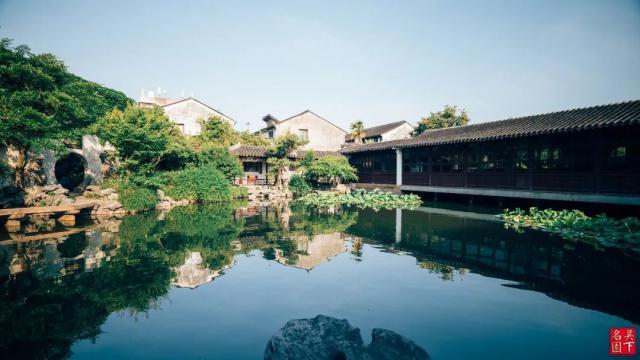
Suzhou Yipu.
Final Thoughts on Your Trip
In the heart of Suzhou lies Yipu, a hidden gem that encapsulates the essence of Chinese garden artistry. This tranquil retreat, often overshadowed by its more famous counterparts, offers a serene escape into the artistry of nature. With its carefully crafted landscapes, serene water features, and a rich tapestry of historical significance, Yipu invites visitors to pause, reflect, and immerse themselves in its beauty.
As you wander through the garden’s winding paths, the delicate interplay of light and shadow enhances the picturesque scenery, creating perfect moments for photography and contemplation. Each corner reveals a new perspective, allowing you to experience the profound connection between nature and architecture that defines traditional Chinese gardens.
Visiting Yipu is not merely an excursion; it is a journey into the soul of Suzhou. Whether you are captivated by the blooming roses in spring or the quietude of a winter’s day, Yipu promises an intimate encounter with the tranquil spirit of the Jiangnan region. So, take a moment to explore this lesser-known paradise and discover the peaceful allure that makes Yipu a true testament to the art of garden design. Embrace the charm of Suzhou and let Yipu be a cherished memory of your travels in this enchanting city.
